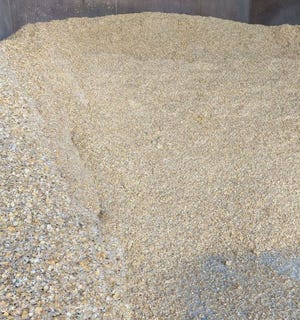Responding To Antibiotic Misinformation
“Since antibiotics have been used in humans for more than 60 years and in livestock for about 50 years, if there was going to be an epidemic of resistance related to antibiotic use in agriculture it
February 15, 2010

“Since antibiotics have been used in humans for more than 60 years and in livestock for about 50 years, if there was going to be an epidemic of resistance related to antibiotic use in agriculture it would have occurred by now. The fact that it has not means that antibiotic use in animals is not a major risk to human health,” says H. Scott Hurd, an Iowa State University veterinarian and a former USDA deputy undersecretary for food safety.
That’s just an example of the thoughtful, factual responses Hurd provides to the myth-filled TV segment that CBS aired last week about the use of antibiotics in livestock production. You can find Hurd’s response in its entirety at vetmed.iastate.edu/news/.
In the meantime, producer organizations like the National Cattlemen’s Beef Association (NCBA) are working to help lawmakers better understand the facts involved in the issue.
For example, Michael Apley, Kansas State University (KSU) veterinary clinical pharmacologist, traveled to Capitol Hill with NCBA to educate lawmakers and their staff about the use of antibiotics in the beef industry. Apley and NCBA met with Rep. Louise Slaughter (D-NY) and Rep. Leonard Boswell (D-IA) to discuss H.R. 1549, Slaughter's bill to ban the use of antibiotics in livestock.
"We appreciate Rep. Slaughter taking the time to visit with us. I'm encouraged by her willingness to sit down for an open discussion and that she has extended an offer for us to be involved in the discussions moving forward," Apley says. "As a veterinary clinical pharmacologist, I work to evaluate the benefits and risks of antibiotic use in livestock. It's extremely important that data-driven review and analysis be the guiding force behind every decision that affects the care of our animals and the safety of the food we eat."
Boswell, who also has concerns about H.R. 1549, was part of a recent congressional delegation trip to Denmark to examine the impacts that country's antibiotics' ban had on Danish swine production.
“Unfortunately, there are a lot of misconceptions and outright misrepresentations out there about why and how antibiotics are used in the cattle industry," Apley says. "The truth is, cattle producers and veterinarians utilize many tools including vaccines, herd-health management, genetics and animal nutrition to avoid the need for antibiotics.
“They must adhere to strict, science-based guidelines in the use of antibiotics to treat, prevent and control disease in livestock. These antibiotics have passed a stringent FDA-approval process, which has demonstrated they are safe and effective.
“Prevention of disease is a cornerstone in both human and animal medicine," he continues. "Veterinarians and producers are intent on fulfilling their obligations to both human and animal health, and our current regulatory process provides methodologies for further evaluating the use of antibiotics in food animals. It would be a tragedy to lose any valuable tools for preventing animal disease without substantial evidence for a benefit to human health."
You May Also Like



